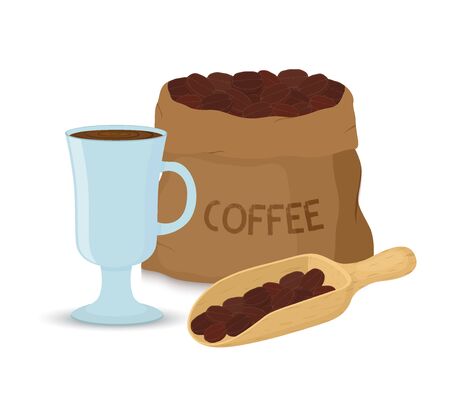1. Understanding Caffeine and How It Affects the Body
Caffeine is one of the most widely consumed substances in the United States, found in coffee, tea, energy drinks, chocolate, and even some medications. But what exactly is caffeine, and how does it affect our bodies—especially our hearts?
What Is Caffeine?
Caffeine is a natural stimulant most commonly found in coffee beans, tea leaves, and cacao pods. Its classified as a central nervous system stimulant because it speeds up messages between the brain and body, making you feel more awake and alert.
How Caffeine Works in the Body
After you consume caffeine, it’s quickly absorbed into your bloodstream and travels to your brain. There, it blocks adenosine—a neurotransmitter that makes you feel sleepy. This blockage increases other neurotransmitters like dopamine and norepinephrine, which boost alertness and mood.
Caffeines Effects on the Body: Short-Term vs. Long-Term
| Effect | Short-Term | Long-Term |
|---|---|---|
| Energy & Alertness | Increased energy levels and concentration within 30–60 minutes | Tolerance may build over time; effects may lessen with regular use |
| Sleep | May cause insomnia or restlessness if consumed late in the day | Chronic sleep disruption if overused regularly |
| Heart Rate & Blood Pressure | Temporary increase in heart rate and blood pressure | Potential for long-term cardiovascular effects depending on individual sensitivity |
The Cardiovascular Connection
Caffeine stimulates the heart and can lead to a temporary rise in blood pressure—even in people without high blood pressure. For most healthy adults, this isn’t a concern. However, individuals who are sensitive to caffeine or have existing heart conditions may experience stronger effects.
How Much Caffeine Is Too Much?
The FDA considers up to 400 milligrams of caffeine per day—about four 8-ounce cups of brewed coffee—to be generally safe for healthy adults. However, sensitivity varies from person to person. Some people may feel jittery or anxious with far less.
Caffeine Sources and Their Average Content
| Beverage/Food | Serving Size | Average Caffeine Content (mg) |
|---|---|---|
| Brewed Coffee | 8 oz | 95 mg |
| Espresso Shot | 1 oz | 63 mg |
| Brewed Tea (Black) | 8 oz | 47 mg |
| Soda (Cola) | 12 oz | 35 mg |
| Energy Drink | 8 oz | 80–100 mg |
| Dark Chocolate (70–85%) | 1 oz | 23 mg |
Caffeine affects everyone differently based on age, weight, genetics, medication use, and overall health. Understanding how your body responds is key to finding a balance that supports both mental focus and heart health.
2. Latest Research Findings on Caffeine and Heart Health
In recent years, scientists have taken a closer look at how caffeine affects heart health. With millions of people in the U.S. drinking coffee daily, its no surprise that researchers are eager to understand whether that morning cup is helping or hurting our hearts. Here’s what some of the most recent and respected studies have found.
Hypertension (High Blood Pressure)
One of the biggest concerns around caffeine is its potential to raise blood pressure. According to a study published by the American Heart Association, caffeine can cause a short-term spike in blood pressure, especially in people who don’t consume it regularly. However, for habitual coffee drinkers, this effect tends to be less significant.
| Caffeine Consumption | Blood Pressure Response |
|---|---|
| Occasional Drinkers | Noticeable short-term increase |
| Regular Drinkers | Mild or no significant change |
The takeaway here is that your body may adapt to regular caffeine intake over time, making it less likely to impact your blood pressure long term.
Arrhythmias (Irregular Heartbeats)
A lot of people worry that caffeine might trigger irregular heart rhythms, also known as arrhythmias. But several large-scale studies suggest this fear may be overblown. For example, research from the University of California, San Francisco found no link between moderate caffeine consumption and increased risk of arrhythmias in healthy adults.
Coffee and Heart Rhythm: What the Data Says
- No significant increase in atrial fibrillation among moderate coffee drinkers
- Caffeine from coffee, tea, or chocolate showed similar results
This doesn’t mean everyone will react the same way—some people with existing heart conditions might still need to limit their intake—but for most folks, your daily brew isn’t likely to throw your heart out of rhythm.
Heart Disease Risk
The big question: does caffeine contribute to or protect against heart disease? The answer seems to depend on how much you’re consuming. A 2021 study published in the journal “Circulation” found that moderate coffee consumption—about 2 to 3 cups per day—was associated with a lower risk of heart disease and stroke.
| Cups per Day | Impact on Heart Disease Risk |
|---|---|
| <1 cup | No significant effect |
| 2–3 cups | Reduced risk (~10–15%) |
| >5 cups | No added benefit or slight increase in risk depending on individual factors |
This suggests that moderation is key. Too little may not help, but too much could work against you—especially if youre adding lots of sugar or cream.
The Bottom Line from Recent Studies
- Caffeine can cause short-term increases in blood pressure, mostly in non-regular users
- No strong evidence links moderate caffeine intake with arrhythmias in healthy individuals
- A few cups of coffee a day may actually lower your risk of developing heart disease

3. How Much Is Too Much? Recommended Caffeine Intake
When it comes to caffeine and heart health, one of the most common questions is: how much is safe to consume? Understanding the recommended limits can help you enjoy your daily cup of coffee without putting your heart at risk.
FDA Guidelines on Caffeine Consumption
The U.S. Food and Drug Administration (FDA) states that up to 400 milligrams (mg) of caffeine per day is generally considered safe for most healthy adults. That’s roughly equivalent to four 8-ounce cups of brewed coffee. However, this amount can vary depending on individual sensitivity and existing health conditions.
Caffeine Content in Common Beverages
| Beverage | Serving Size | Approximate Caffeine (mg) |
|---|---|---|
| Brewed Coffee | 8 oz | 95 mg |
| Espresso | 1 oz (single shot) | 63 mg |
| Black Tea | 8 oz | 47 mg |
| Soda (Cola) | 12 oz | 30-40 mg |
| Energy Drink | 8 oz | 70-100+ mg |
Caffeine and Heart Health: What Experts Say
The American Heart Association doesn’t set a specific limit for caffeine but advises moderation, especially for people with high blood pressure or other heart conditions. While moderate caffeine intake is not linked to increased heart disease risk in healthy individuals, overconsumption may lead to short-term spikes in blood pressure or irregular heartbeats in sensitive individuals.
Caffeine Sensitivity Matters
Your personal response to caffeine can be influenced by genetics, medications, and overall health. If you notice symptoms like palpitations, anxiety, or trouble sleeping after consuming caffeine, it may be a sign to cut back—even if youre within the general guidelines.
Caffeine Intake Tips for Heart Health:
- Aim for no more than 400 mg of caffeine per day if youre healthy.
- If you have high blood pressure or other cardiovascular issues, talk to your doctor about a lower limit.
- Pace your caffeine throughout the day instead of consuming it all at once.
- Avoid high-caffeine energy drinks with unknown ingredients or high sugar content.
- If youre pregnant or breastfeeding, the recommended limit drops to around 200 mg per day—check with your healthcare provider.
The key takeaway? Moderation is essential. Knowing how much caffeine is in your favorite drinks and understanding how your body reacts can help you make smarter choices for your heart.
4. Caffeine Sensitivity and At-Risk Populations
Not everyone reacts to caffeine the same way. While some people can enjoy multiple cups of coffee a day without issue, others may feel jittery or experience heart palpitations after just one cup. This difference in how our bodies respond to caffeine is influenced by several key factors: genetics, age, lifestyle choices, and existing health conditions.
Genetics and Caffeine Metabolism
Your genes play a major role in how quickly your body processes caffeine. A gene called CYP1A2 helps break down caffeine in the liver. Some people have a version of this gene that works faster, while others metabolize caffeine more slowly. Slow metabolizers tend to be more sensitive to caffeine and may face greater cardiovascular risks when consuming high amounts.
How Genetics Affect Caffeine Sensitivity
| Genetic Type | Caffeine Metabolism Speed | Potential Heart Health Impact |
|---|---|---|
| Fast Metabolizer | Quickly breaks down caffeine | Lower risk with moderate intake |
| Slow Metabolizer | Caffeine stays longer in the system | Higher risk of high blood pressure or heart issues |
Age-Related Differences
As we age, our bodies become less efficient at processing substances like caffeine. Older adults may find that they become more sensitive to caffeine over time, leading to sleep problems, increased heart rate, or even arrhythmias if consumed late in the day or in large amounts.
Lifestyle Factors
Your daily habits can also influence how your body reacts to caffeine. Smokers tend to process caffeine faster, while stress and lack of sleep can heighten sensitivity. Diets high in sugar or processed foods might also amplify caffeines effects on the heart.
Lifestyle Impact Overview
| Lifestyle Factor | Effect on Caffeine Sensitivity |
|---|---|
| Smoking | Speeds up caffeine metabolism |
| High Stress Levels | Increases sensitivity and potential for heart palpitations |
| Poor Sleep Habits | Makes negative effects of caffeine more noticeable |
Pre-existing Health Conditions
People with certain medical conditions should be especially mindful of their caffeine intake. Those with hypertension (high blood pressure), arrhythmias (irregular heartbeats), or other cardiovascular diseases may find that caffeine worsens their symptoms. Its always best to consult a healthcare provider if you have a condition that could be affected by stimulants like caffeine.
Health Conditions That May Increase Risk from Caffeine Intake:
- High blood pressure (Hypertension)
- Heart rhythm disorders (Arrhythmias)
- Anxiety disorders
- Sleep disorders such as insomnia or sleep apnea
Caffeine affects everyone differently, and understanding what makes you more or less sensitive can help you make smarter choices for your heart health.
5. Practical Tips for a Heart-Healthy Coffee Habit
If you love coffee but also care about your heart, the good news is that you dont have to give it up. By making a few smart choices, you can enjoy your daily cup while keeping your heart in mind. Here are some easy-to-follow tips for a heart-healthy coffee habit.
Choose Healthier Coffee Options
Not all coffee drinks are created equal. Some coffeehouse favorites are loaded with sugar, cream, and flavored syrups that can increase calories and saturated fat. Try these healthier alternatives instead:
| Coffee Drink | Better Choice |
|---|---|
| Flavored Latte (with whole milk & syrup) | Latte with skim or almond milk, no added syrup |
| Iced Mocha with whipped cream | Iced coffee with splash of oat milk |
| Caramel Frappuccino | Cold brew with a touch of honey or cinnamon |
Watch Your Portion Sizes
Supersized coffee servings may mean youre getting more caffeine than you realize. A standard cup of brewed coffee (8 oz) contains around 95 mg of caffeine, but many popular sizes are much larger. Consider sticking to small or medium sizes to avoid overdoing it.
Common Coffee Sizes and Caffeine Content
| Size | Approximate Caffeine |
|---|---|
| 8 oz (Small) | 95 mg |
| 12 oz (Medium) | 140 mg |
| 16 oz (Large) | 190 mg |
Time Your Caffeine Intake Wisely
Caffeine affects everyone differently, but drinking it too late in the day can disrupt your sleep—something thats closely tied to heart health. Try to enjoy your last cup by early afternoon. A good rule of thumb is to avoid caffeine at least six hours before bedtime.
Be Mindful of Add-ins
What you put in your coffee matters. Excess sugar and full-fat dairy can add up quickly. Use natural sweeteners like stevia or a dash of cinnamon for flavor without the extra calories. Plant-based milks like almond or oat milk are great lower-fat options.
A Quick Guide to Coffee Add-ins
| Add-in | Healthier Swap |
|---|---|
| Sugar (1 tbsp = ~50 cal) | Cinnamon or stevia |
| Whole Milk or Creamer | Almond or oat milk (unsweetened) |
| Flavored Syrups | Pure vanilla extract or nutmeg sprinkle |
A few small changes can make a big difference in how coffee fits into your heart-healthy lifestyle. With mindful choices, you can still enjoy your favorite brew while supporting better heart health every day.

